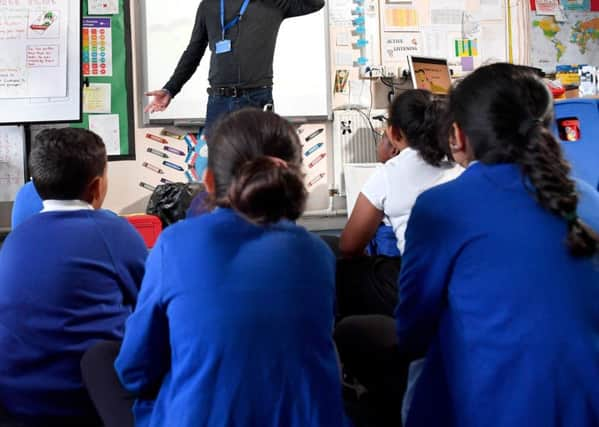Over 16,000 ‘newcomer’ schoolchildren in NI lack enough English


The figures emerged as the Department of Education issued a press release today calling for views on how to best support such pupils.
The department said that in the region of 16,000 pupils are currently classed as ‘newcomer’ pupils – 4.4% of the school population.
Advertisement
Hide AdAdvertisement
Hide AdThe definition used in the press release of “newcomer” was as follows: “A pupil who speaks a different language at home than the one used in their school, and who needs extra help to understand the language.”
Outside of the press release, the language the department uses is more frank.
A supplementary document defines such pupils as ones “who do not have English or Irish as their first language and do not have satisfactory language skills to participate fully in the school curriculum”.
The News Letter looked at historic data for the number of newcomer pupils.
In 2006/07, there were 5,665.
Advertisement
Hide AdAdvertisement
Hide AdThe number then rose fairly steadily, and in 2018/19 the figure stood at 16,238.
The vast bulk of the 16,238 current newcomer pupils (11,435 to be exact) were in primary schools.
The top five languages spoken by newcomer pupils are Polish (4,750), Lithuanian (2,236), Romanian (1,086), Portuguese (1,019) and Arabic (830).
The department said the “total allocation under the common funding formula for newcomer pupils is £16.5 million in 2019/20” and that “this represents 1.34% of the total aggregated schools budget”.
Advertisement
Hide AdAdvertisement
Hide AdIt adds: “The arrival of people from other lands into the north of Ireland has enriched the diversity of our population, our cultural perspectives and has significantly changed the range of languages spoken here.”
Its current policy on such pupils has been in place for a decade and “during this time there has been an increase in the number and diversity of Newcomer pupils... we need to know if our policy still meets the needs of these pupils”.
The consultation launched today will remain open until October 15. It can be found at www.education-ni.gov.uk/consultations/supporting-newcomer-pupils